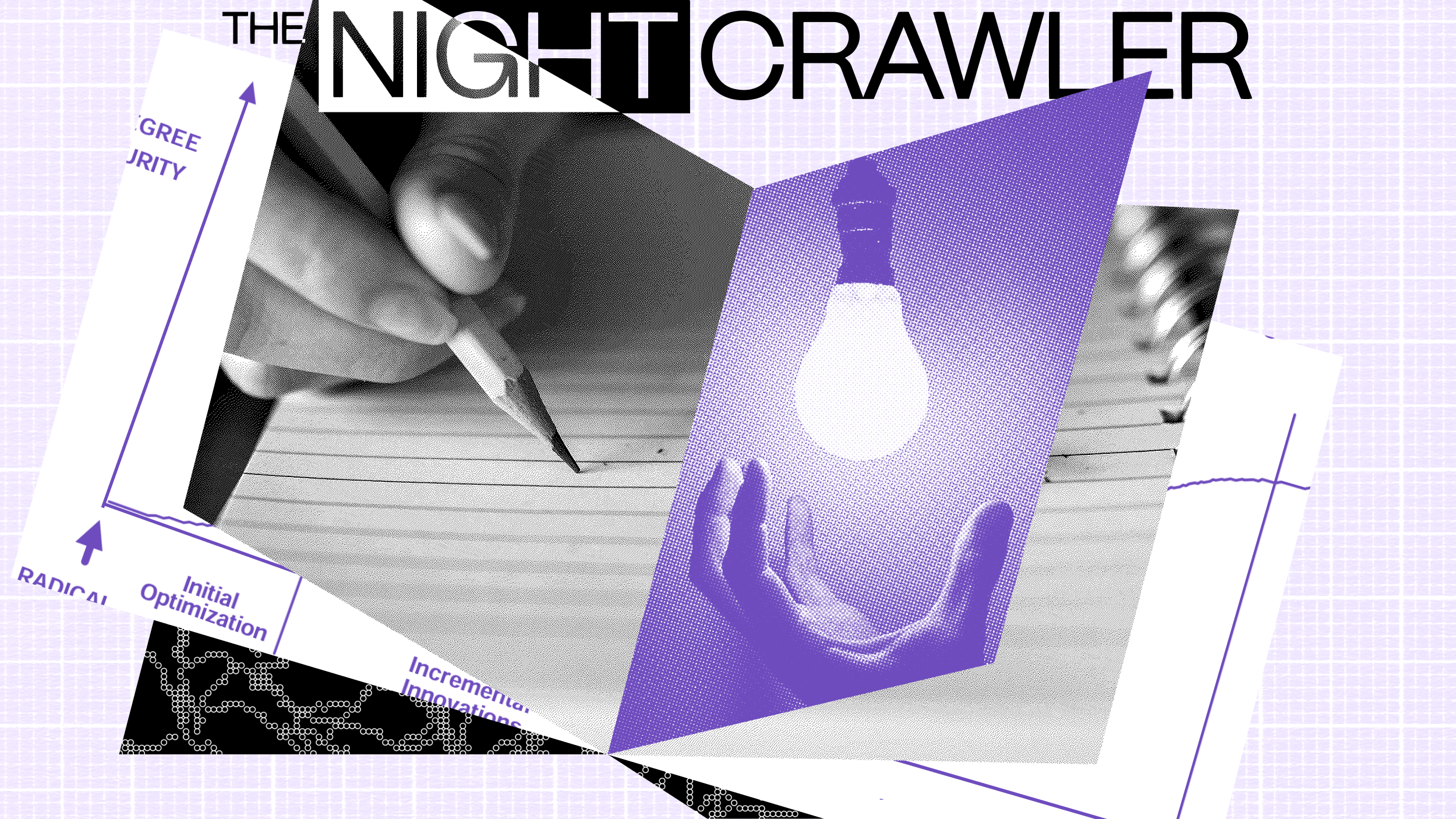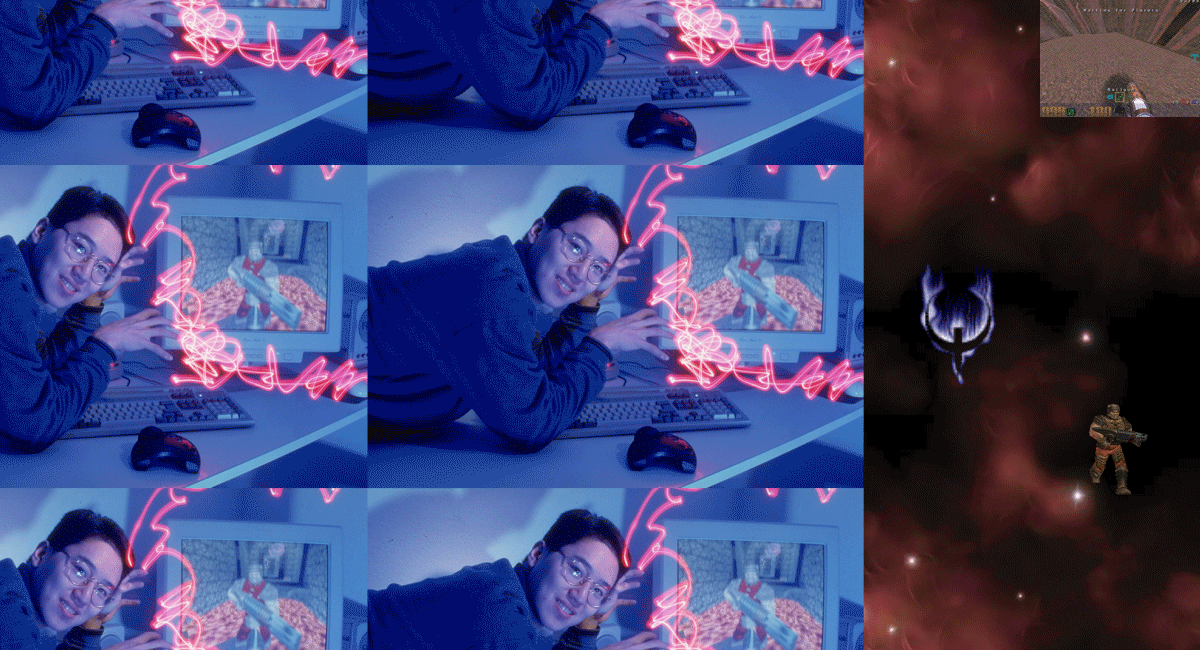Planes, trains, automobiles: Richard Schaden talks about which inventions are likely to unleash the next waves of transportation innovation.
Question: Describe the genesis of your idea for Beyond the Edge.
Richard Schaden: Well I first thought of the idea, my son used to always say about, “If you’re not living on the edge, you’re taking up too much space.” And I was thinking maybe all the great ideas are somewhere in the middle. How do we move them out to the edge and beyond the edge and into fruition? Just off of that one comment. And I got to thinking in terms of travel on the planet, whether it was on the surface of the water, or whether it was on land, locomotion. Whether it was in the atmosphere, or maybe should be outside the atmosphere, and how do you do that in a clean fashion because I look at it this way. We’re 10 years past Y2K, 24/7 we move people up, down, sideways, across the surface of the planet, in the atmosphere, and what have you. And for the most part, we’re doing with hydrocarbon fuels which are having a very detrimental effect on our ecosystem and our planet and the survival of the planet. So, I got to thinking along those lines.
I found the Tesla car, looked at that. Looked at it from the possibility of making an electrical airplane with the same type of technology. It looked like an easy thing to do. Horsepower to weight ratio, that same power plant system could be used in a small airplane without much trouble. Looked at how you would do that. And then I also got to thinking the biggest problem we really have, is we’re moving passengers for the most part, all over the world in the atmosphere in large jet airplanes that are using hydrocarbon fuels. How do you solve that problem? And where is the technology to make that work in a cleaner fashion?
Or maybe the idea is not to fly in the atmosphere at all. We started looking at that. So, I thought, “Well, I’ve got to go find those ideas.” Find out where those people are, where that technology is and how it can grow in the direction to cause clean travel to come to fruition.
Question: What role will you play in Beyond the Edge?
Richard Schaden: That’s what I was looking for when I started. What role will I play and how would I find it. It’s been amazing, that since I started in a short period of time, some people have come together very well. It was a great pleasure that I met with Peter Diamonds and his Xprize Foundation and how he was able to leverage people to compete and come up with the best ideas to accomplish a particular feat. The first Xprizes, as I understand, was for a kind of a suborbital flight into space, which was given to Burt Rutan, and Paul Allen. What a great way to get people to spend a lot of resources to accomplish and to bring to fruition the best ideas. I thought that was great leverage.
I was able to talk to some physics professors that came up with some new ideas for collecting solar energy. The sort of things that would help tremendously in aviation and clean power. So, all of a sudden, I’m starting to find that there are a lot of people that really want to do this. There’s a lot of great ideas out there and some of the ways of bringing them together are in the competition arena, which I think is really wonderful. And I’m looking for other hooks to do that, but many nights I go to sleep thinking, you know, how am I really going to do this? I’ve learned this today, but what’s going to come up tomorrow. And every day, I find a better way to bring people together. And I think it’s evolving rapidly to a point where we’re getting the best minds to be able to share on a very legitimate and authentic basis without fear of ego.
And what I’m trying to do is create a safe place for these people to collaborate and now have the fear of losing their identity, losing their financial position, somebody stepping on their ego, to get people to evolve beyond that. And I have the sense that it’s going to work real well, and it’s going to happen real soon.
Question: How do you see this idea of a safe place for collaboration manifesting itself?
Richard Schaden: Well, it’s interesting because although I refer to myself as an aviation person, as an aviator and a trial lawyer, I got dragged into business kicking and screaming maybe 20 years ago. I am my second oldest son’s partner in the food business, which is a quick-service restaurant. We have two concepts plus a food purveyor company, a computer company, a restaurant equipment company. And we control or have maybe 6,000 units throughout the world. As a result of that, kicking and screaming, I’ve had to learn business, which was never – to me I used to call it the “soft science” but I actually find is fairly sophisticated. Although it’s not my passion, I’ve learned about business and the business acumen that was necessary to make all of that work and I give much credit to my son, Rick, who is Richard E. Schaden, for I mean, he’s basically created that and I’ve been a great beneficiary of it. But it has given me a view of how to do these things also from the standpoint of the capital that’s required. And we have some great partners in the capital world.
So what we can bring to the table, you know, for of all was the technical understanding and the conceptual understanding of mathematics, chemistry, and physics, which was my original passion. We can bring the legal acumen because we’ve got a lot of experience in the legal arena, not only in the trial of airplane crash cases, but now in the trial of many business cases because we always have what we call litigation going on in the franchise world, which we are very involved in now. So, there’s the legal side of it, and now we have the business side. So, it’s really a three-pronged thing.
Sometimes it will just be a matter of taking a great idea that a young person has and helping them find the information that’s necessary to bring it to fruition and the capital. And without the fear that they’re going to have to give something away to do it. I’ve had many experiences just in the last month of being able to talk to young engineers, or “young expansives” as we call them, with great ideas and being able to help them along the path to making it real.
Question: How does this compare to traditional venture capital?
Richard Schaden: Well because the capital part of it is, my own cash is a relatively small part of it. It’s the conceptual ideas technically, mostly from a science prospectively. I often talk to venture capital people or investment bankers that are looking at ideas that have a science base. And they understand just what they need to know to understand how to talk about that particular product, or that particular idea, but they don’t understand what’s right next to it, and they really don’t understand science from a conceptual standpoint. I’ve heard, for example, more people trying to raise funds for storage of electricity. Various battery systems, or propulsion systems, or airplane systems, but the people in the venture capital where they’re talking about it really don’t conceptually understand it. And that’s what we want to bring to the table.
Question: What are the domains that have the greatest potential to unleash waves of innovation?
Richard Schaden: Well I think what’s on the table right now is the clean travel, alternative energy. I mean, we’re bumping up against a lot of other ideas when we start looking at this. For example, if we’re looking at electrical power for powering electric cars, or electric airplanes, we still have to look at storage systems to store that power. And Lithium Ion batter is the current brainchild; it’s the favorite among scientists. And it’s the favorite among industry. And then I started thinking, but where does lithium come from? And I started looking at water concepts, reverse osmosis system water, and what he byproducts of that were, how lithium can be a great byproduct from what is being manufactured as RO water, Reverse Osmosis System water. So, it’s branching out well beyond the simple issue of locomotion and green travel.
Question: How would you formulate the parameters of a prize to achieve the outcomes you are looking for?
Richard Schaden: Well, again, it’s a very evolving process. I’ve been thinking about it a lot. I think that competition works really well, on the other hand, I don’t think it’s the only way. I think that there is a real change happening in human kind in this world. I think there are a lot of people who really want to improve the culture that we live in. We have lots of cultures on the globe, but they want to think more on a global basis and share ideas and I’m working every day on trying to find the best way to do that. Right now I like the competition approach, the prize, I was going to say it is very similar to running for the United States Senate, you know, you spend $7 million to get a job that pays $150,000 a year. But that’s great leverage. You get a lot of people working and doing lots of things. And that competition prize sort of system seems to work pretty well.
So one of the things I am doing now is looking at some of the things that would be a good design for a competitive project. I’ve been looking a lot in the last month or so, and there are a lot of great ideas up there. I love the idea, for example – and this idea came to me through Peter DeAmandis and I’m not sure where it came from originally, but rather than carry fuel in the airplanes, for example, to beam fuel up either on a microwave basis or a laser basis from the ground up to the vehicle rather than having to carry it. And that way I think it could be done with clean energy and without carbon fuels.
If you look at a microwave oven, the microwave really excites the particles in the matter, in the food and causes it to heat up rapidly. If we had, for example, an element that wasn’t carbon, like hydrogen, in a vehicle that was up in the air and we could actually beam up the energy to excite the particles in the atoms, or in the molecules in the hydrogen, or whatever it is that you store it, that’s a non-carbon fuel, we could create energy and if you wanted to expand that energy through an exhaust nozzle, you would have thrust, for example. Real simple terms.
Question: What are the boldest and wide-eyed visions you have for the future?
Richard Schaden: Well, I’m sure it’s not an original thought by any stretch, but I think that suborbital travel is a concept that makes a lot of sense for scientists to look at right now. You know, the globe turns at 1,000 nautical miles every hour, so let’s take some advantage of that. If you wanted to travel from New York to Sydney, why not get out to the outer edges of the atmosphere, either re-enter, skip off of the atmosphere and re-enter into Sydney, or what have you. You could do it at tremendous speeds, you could do it with a lot less energy, I believe, although there is a lot of debate on that right now. How you do it? It would be a great prize for competition, but that excites me, that idea.
The idea of blasting through the atmosphere at altitudes of 30,000 to 45,000 feet all the time seems to me to be very energy inefficient and also right now we are using a lot of carbon fuels and we are doing a lot of damage to the atmosphere and to the planet.
Recorded on January 25, 2010





